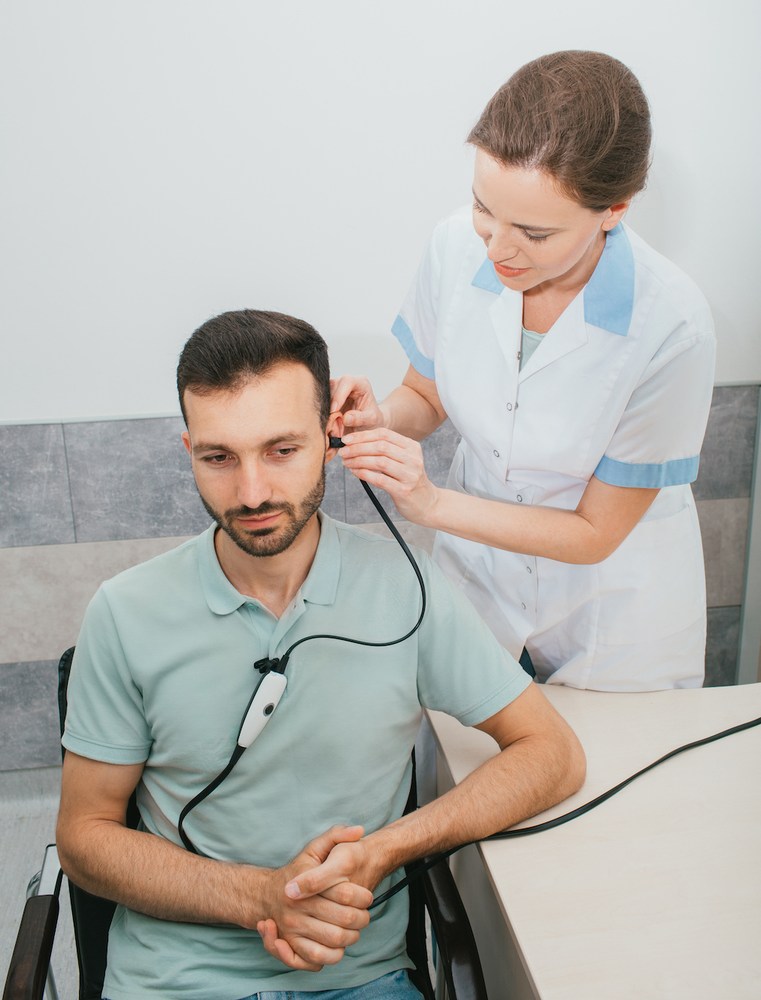Occupational Hazards: Professions at Risk for Hearing Loss
Hearing is an essential part of our daily lives, yet we often take it for

By: admin | February 15, 2023
Hearing loss is often a common complaint for anyone over the age of 65. Unfortunately, a loss of hearing is part of getting older – but it can also lead to a lower quality of life. People who are hard of hearing can find it difficult to communicate well with others which can result in mental issues. Take a look at what you need to know about hearing loss and how it can affect the quality of life in older adults.
Many studies have been conducted on hearing loss and the quality of life in older adults. Firstly, these studies have shown that older adults with hearing loss can be at risk of a shorter lifespan. Secondly, if an adult has vision impairment as well as hearing loss, it can greatly impact their ability to complete everyday tasks well.
Hearing loss can also be linked with a risk of stroke and heart disease. High blood pressure is often linked to hearing loss because the body has to work harder at pumping blood around. If the blood supply to the ear is reduced it can result in hearing loss.
In addition, hearing loss can lead to cognitive decline. With the risk of many health conditions increasing, the simple fact becomes that hearing loss can be linked to a shorter life span.
Hearing loss is closely linked with both physical and mental health risks. Take a closer look at what these health risks are and what you can do to avoid them.
Did you know that people with hearing loss are more likely to have depression than those without hearing loss? Levels of depression can vary but it’s always important to recognize symptoms and get help. Those who find it difficult to communicate with others are often more susceptible to feelings of depression.
Finding new ways of communication can help. For instance, using sign language or carrying paper and pen with you can dramatically improve your interactions with others. It can help to spend time with other people who have hearing loss. Most importantly, visit and talk with your audiologist to find solutions.
Hearing loss can be one of the first signs that you’re at risk of heart disease. Similarly, finding out you have heart disease can also be an indication that you should have your hearing checked. Keep an eye out for symptoms of either one and visit your doctor as soon as possible to discuss your concerns.
Dementia is another condition strongly linked to hearing loss. However, just because you have hearing loss it doesn’t mean you will be diagnosed with dementia. Again, it’s often wise to talk to your doctor about any concerns. There are many things you can do to keep your brain healthy and active as you age.
For instance, doing puzzles and crosswords every day can help. Similarly, making sure you get out and socialize with others so you have plenty of conversation can also help to keep you sharp.
Fortunately, there are many ways you can manage hearing loss without feeling like you’ve lost your quality of life. Here are some options:
Hearing aids are usually the most effective solution for managing hearing loss. Your audiologist will be able to advise you on which hearing aid is most suited to you. There are different sizes and types of hearing aids, all of which are suited to differing degrees of hearing loss.
Iron deficiency can play a part in hearing loss. It’s worth asking your doctor to check you for an iron deficiency and advise you on what changes to make to your diet. If you are iron deficient, you may be prescribed an iron supplement in the form of a pill.
If you’re asking yourself this question, it’s likely because you’re experiencing some form of hearing loss. The answer is yes; especially if you’re over the age of 65. If you’re finding it more difficult to hear or you have ringing in one or both ears, an audiologist will be able to help.
You will be given a hearing test and then the results will be discussed with you. If you are given a hearing aid, it’s important you return to your audiologist for regular checkups and follow any advice that could improve your hearing. Get started on your path to better hearing health by contacting the friendly staff at Hearing Aid Consultants of North Mississippi by calling (662) 234-1337.

Hearing is an essential part of our daily lives, yet we often take it for
By: admin | January 31, 2024

If you have experienced a difficulty understanding speech, or following
By: admin | December 28, 2023

Forty-eight million Americans are living with hearing loss, which is
By: admin | November 25, 2023
